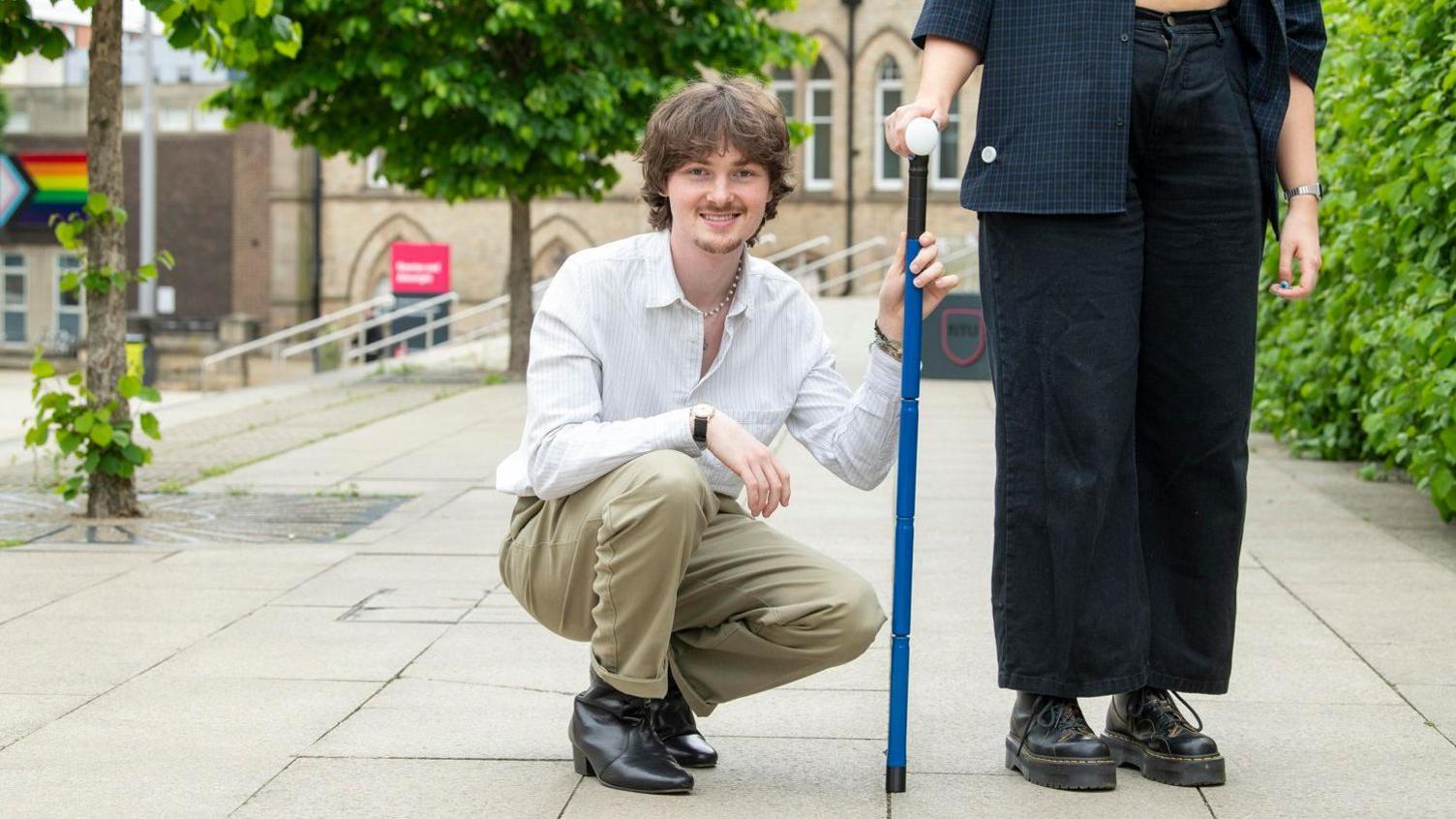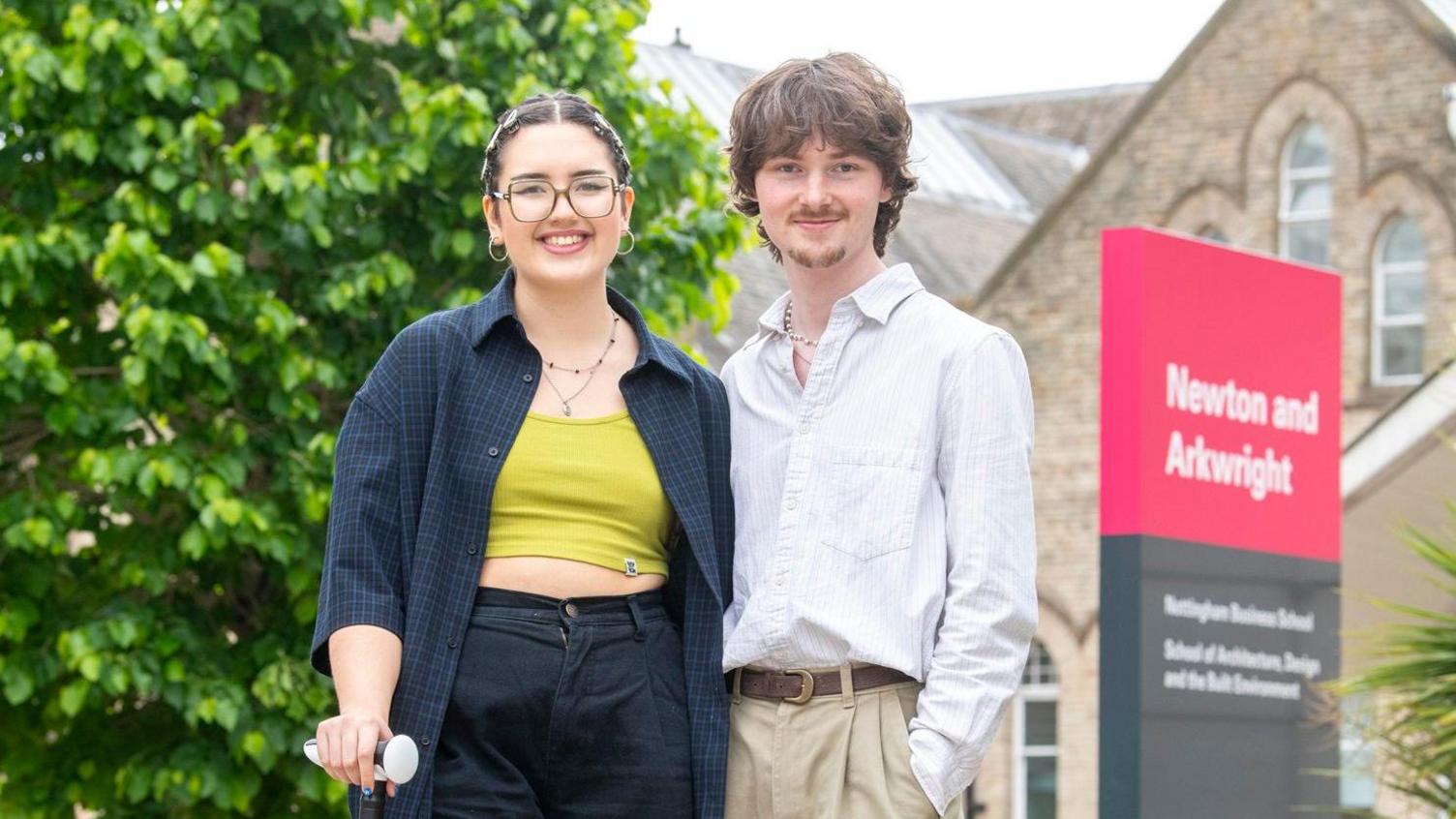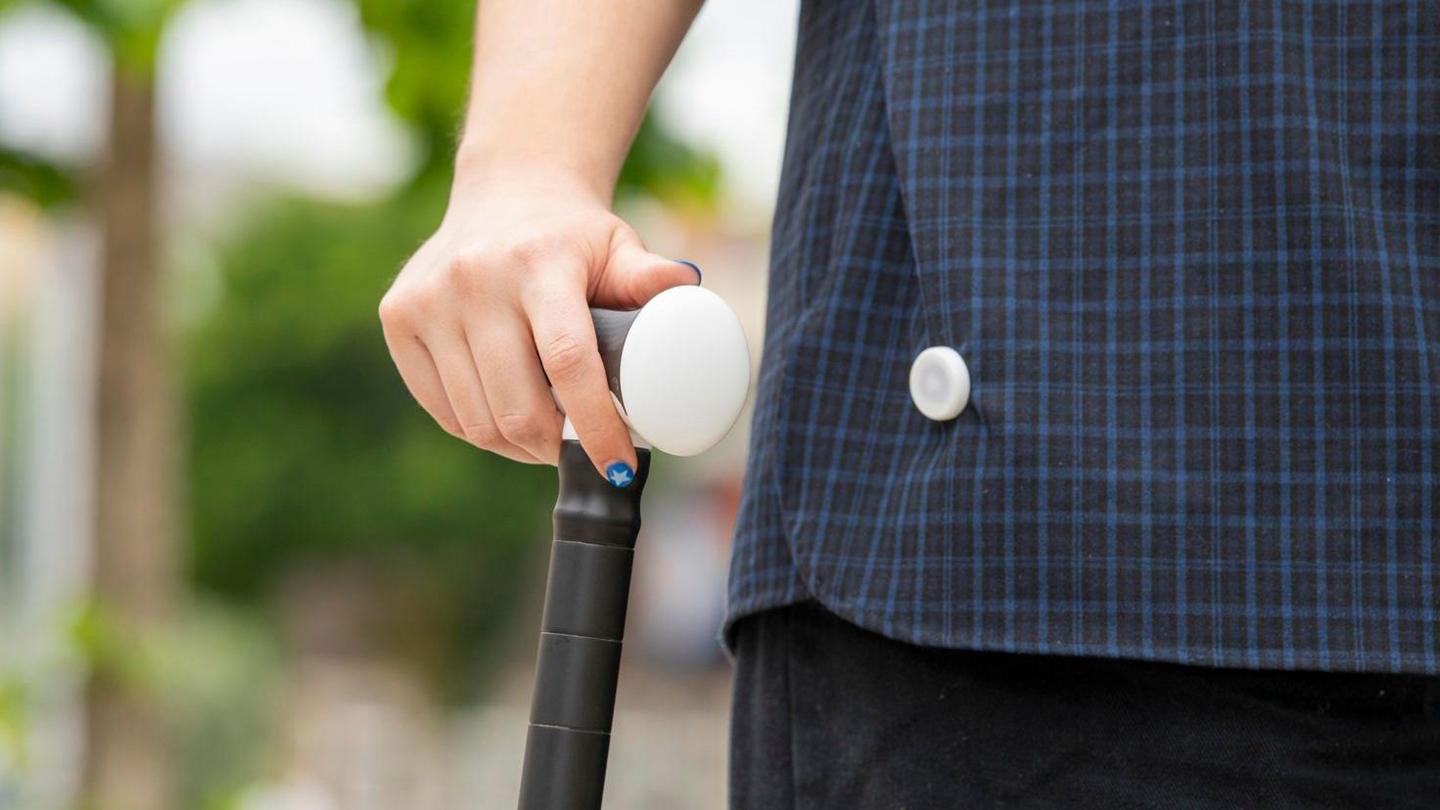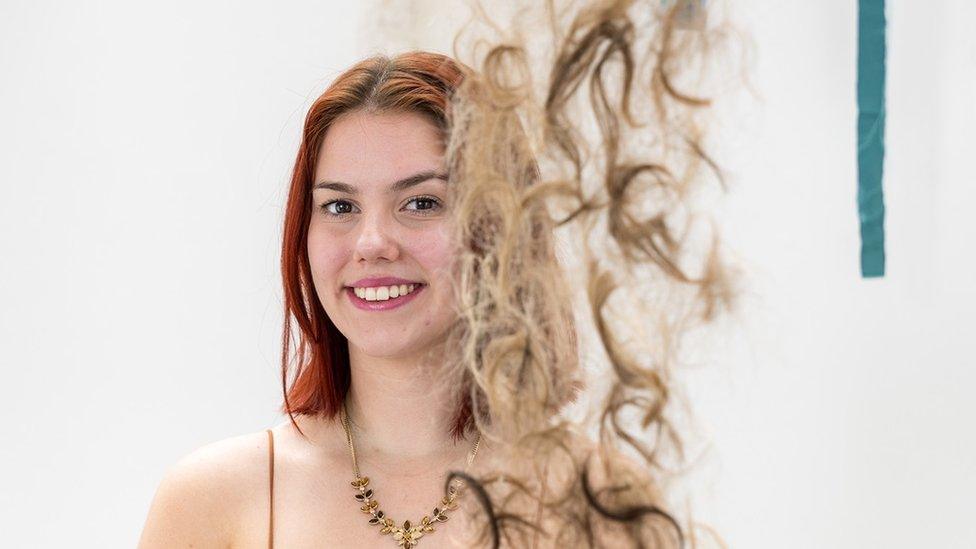Man inspired by partner makes magnetic walking stick

Product design student, Sean Guyett, wanted to make something that would help people who have a disability
- Published
A student has created a magnetic walking stick after seeing his partner, who has multiple sclerosis, struggle while using a standard one.
Sean Guyett, a design student at Nottingham Trent University (NTU), had noticed how standard walking sticks often fell to the floor while their owner did other tasks.
Removable magnetic pads, which attach to clothing, mean the stick can be secured without being held.
The 22-year-old was inspired by his partner Ora Hambleton after seeing the difficulties she and other disabled people faced trying to integrate walking sticks into their everyday lives.
Mr Guyett, from Uxbridge in West London, said his aim was to support people who found themselves "designed out" of the wider world.
He said he was particularly interested in those who are of working age due to "low employment figures" of people who have disabilities.
Almost half of people who have a disability are unemployed, compared to 18% of able-bodied people, according to government figures.

Mr Guyett was inspired by his partner Ora Hambleton, who has multiple sclerosis (MS)
As part of his research, Mr Guyett met with people with a range of disabilities to gain a greater understanding of their personal experiences.
He found walking sticks did not "integrate very well" into people's lives and could become a "hinderance" at times, saying the sticks often fell over when being leant against a counter or were difficult to use on buses.
He said: "I wanted to create something to show how we can design away many of the common problems that are faced by people who have to rely on a walking stick.”
The student created a clip that hooks onto the top of a pair of trousers and another magnet that attaches to a small steel plate and can go under clothing such as dresses.
Named Ida - after the mountain on which magnets were discovered in Greek mythology - the walking stick can attach to both clothing magnets or be secured against any other metal surface and easily pulled away.

The magnets can be clipped onto clothing so that the stick attaches too
The walking stick has a lightweight aluminium pole as well as three different designs of handles and bases that are interchangeable for different uses.
Mr Guyett's partner, Miss Hambleton - a postgraduate psychology student at NTU - said: “Sean’s design means that I don’t have to be worried about taking my stick out with me anymore because I know it will accommodate my needs in the moment.”
The student's design is on show for the NTU student showcase at the City Campus until 7 June.
Follow BBC Nottingham on Facebook, external, on X, external, or on Instagram, external. Send your story ideas to eastmidsnews@bbc.co.uk, external or via WhatsApp, external on 0808 100 2210.
Related topics
See more on this story
- Published28 May 2024

- Published22 May 2024

- Published14 May 2024
